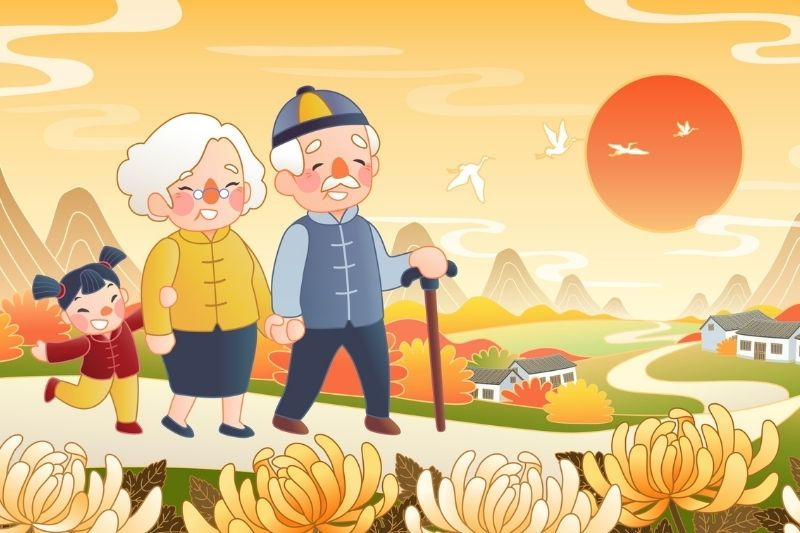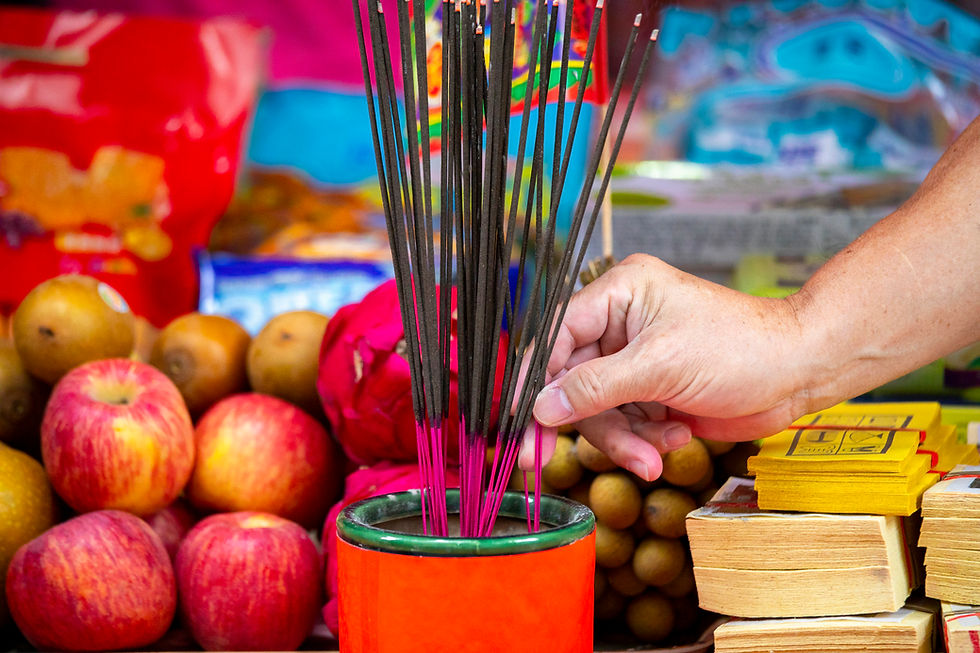What is Dongzhi (Winter Solstice) and when is it?
- Oct 23, 2025
- 5 min read
Every year, as the nights grow longer and the air turns colder, we look forward to one of the most cherished festivals in Chinese culture, the Winter Solstice, or Dongzhi (冬至). For us, it’s more than just a seasonal change; it’s a meaningful time that brings families together to celebrate warmth, reunion and balance. Having grown up in Guangzhou, this festival has always held a special place in our hearts, and even now, while we call Barry our home, we continue to keep those traditions alive through food, family and shared experience.
The Winter Solstice marks the shortest day and longest night of the year, a turning point where the days slowly begin to lengthen again. In Chinese tradition, this shift symbolises the balance of yin and yang, representing the gradual return of light, warmth and positive energy after the darkest part of the year. For generations, this day has carried deep cultural meaning, reminding us that even in the coldest and quietest moments, life renews itself.
For our family, the Winter Solstice is a moment to pause, gather and reflect. Growing up, our grandparents would prepare hearty dishes that filled the house with warmth, and we would sit together sharing stories, laughter and food that carried history within every bite. Now, in our kitchen here in Barry, those same dishes are part of how we share that feeling with our community, through flavours that comfort the soul and connect us to our roots.
The Meaning Behind Dongzhi
Dongzhi translates directly to “the arrival of winter”, but its meaning goes far beyond the season itself. Traditionally, it is seen as a time to restore balance in life, to appreciate family ties and to look forward to the return of brighter days. In ancient times, it was considered just as important as Chinese New Year, with families preparing offerings for ancestors and gathering for a special meal that symbolised unity and renewal.
This idea of balance, of cold giving way to warmth and darkness giving way to light, is deeply woven into Chinese philosophy. It’s a reminder that every phase, no matter how harsh, is temporary, and that harmony always returns. Many families still mark the day with rituals or small ceremonies, whether it’s lighting candles, preparing specific dishes, or spending time with loved ones to welcome positive energy back into the home.

Tangyuan and Dumplings: Traditions from North and South
One of the most cherished parts of the Winter Solstice is the food that accompanies it, and depending on where you are from in China, the dishes can differ greatly. In the south, where our family is from, people traditionally make and eat tangyuan (glutinous rice balls). These soft, chewy rice balls are often filled with sweet black sesame, red bean paste or peanut filling, and served in a warm, lightly sweetened soup. The round shape of tangyuan represents wholeness and unity, a perfect symbol for family reunion and harmony.
In our family, preparing tangyuan is a shared experience that connects generations. When we were young, we would roll the dough by hand while our grandparents prepared the fillings, each of us shaping slightly imperfect spheres that still tasted like perfection when cooked. The process wasn’t just about food; it was about slowing down, sharing stories and creating memories. Here in Barry, we sometimes prepare tangyuan at home for our family before a busy evening at the takeaway, keeping that comforting tradition alive no matter how far we are from Guangzhou.
In northern China, families celebrate Dongzhi with dumplings instead. The story goes that this tradition began during the Han Dynasty, when the famous physician Zhang Zhongjing made dumplings filled with lamb and herbs to help people stay warm and prevent frostbite. Since then, dumplings have become a staple Winter Solstice food in the north, symbolising warmth, care and good fortune. Whether through dumplings or tangyuan, the message remains the same: food is a way of expressing love and bringing people together.
The Warmth of Traditional Winter Dishes
While tangyuan or dumplings are the highlights of Dongzhi, many families also enjoy other dishes that warm the body and soul. In southern China, soups and slow-cooked stews are popular choices. Ingredients such as ginger, lamb and chicken are believed to nourish and restore energy, helping the body stay balanced during the colder months.
Our experience of Dongzhi in Barry has adapted slightly to the local climate, but the essence remains the same. Hearty, warming dishes shared with people you love have a way of turning even the coldest winter evening into something special. The comforting aroma of a slow-simmered broth or the rich flavour of a homely stir-fry brings a sense of connection and comfort that goes beyond the food itself.
Dongzhi as a Reflection of Values
Dongzhi is a celebration that reminds us of what truly matters: family, health, gratitude and harmony. It’s about cherishing the people who share your table and the traditions that remind you where you come from. For us, the festival reflects the same values we try to bring into our kitchen every day — care, balance and authenticity.
Even though we live far from Guangzhou, we hold onto these customs because they ground us. Sharing them with our customers here in Barry feels like passing on a piece of that heritage, a way for others to experience the heart behind our food. Each dish we make during the winter season is inspired by that same sense of togetherness and appreciation that defines Dongzhi.
Continuing the Tradition in Barry
Keeping Chinese traditions alive while living in the UK has always been important to us. The Winter Solstice gives us an opportunity to share our culture in a way that’s meaningful and accessible to everyone. Whether it’s explaining the story behind tangyuan to a customer or preparing comforting seasonal dishes that remind us of home, this celebration continues to shape how we connect with our community.
Over the years, we’ve noticed that many people in Barry are curious about Chinese festivals and the stories behind our dishes. Dongzhi is one of those occasions that offers a wonderful glimpse into how food, family and cultural identity come together. Through each meal we prepare, we hope to create the same feeling of warmth and closeness that we grew up with, a reminder that even on the coldest nights, there’s always something to celebrate.
A Celebration of Balance and Togetherness
As the year draws to a close and winter deepens, the Winter Solstice stands as a quiet yet powerful reminder of renewal. It’s a time to embrace the cold, find comfort in warmth and look ahead to brighter days. For us, it’s an opportunity to honour our heritage, to share our experience with others and to keep traditions alive through food and family.
When we prepare dishes during Dongzhi, we do so with the same care our grandparents once did, believing that good food brings people together, that each flavour tells a story and that balance is the heart of every meal. In every bowl of soup or bite of tangyuan, there’s a piece of our past, our home and the warmth that continues to carry us through every winter.




